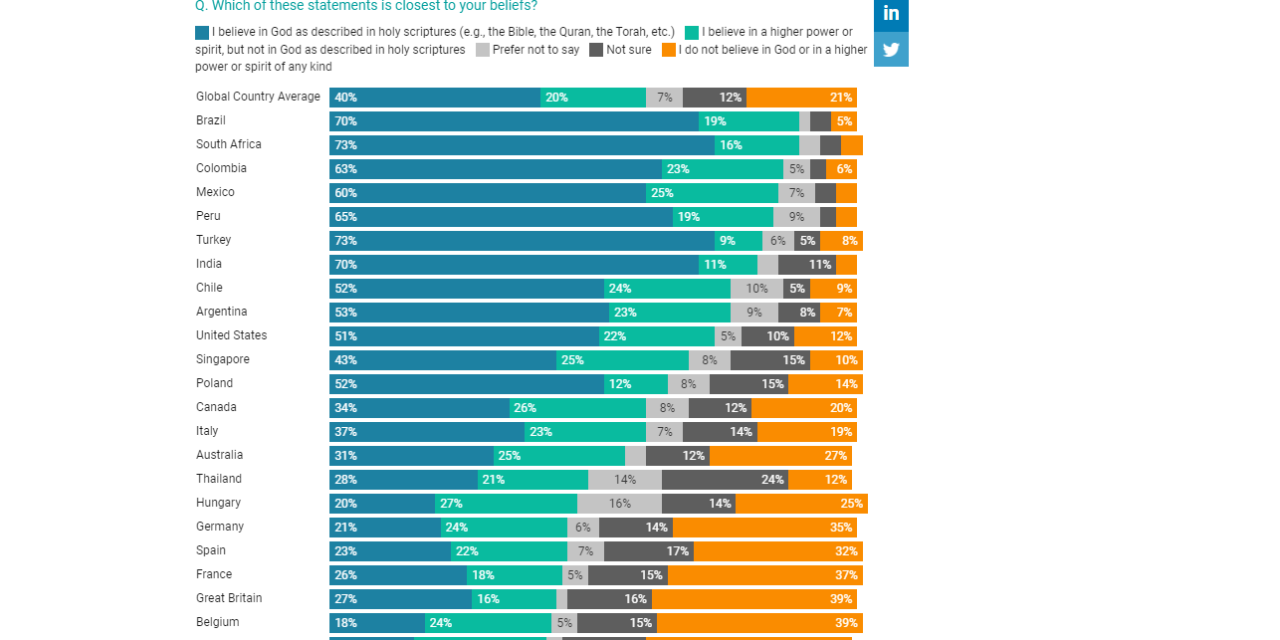Can you please help us understand the new survey by Ipsos Global Advisor that studied 20,000 adults from across 26 countries, uncovering that in nine countries where less than one-third of adults believe in God as described in holy scriptures, Generation Z was more likely to hold these convictions than boomers. What in the world? Basically, if we’re understanding this correctly, if belief is *up*, it’s mostly because of Gen Z. If belief is down, it’s mostly boomers who are seemingly walking out the door of the church. How can this be? And how can THAT be (that Gen Z belief is ‘up’???)? Is this true in *your* neck of the woods? Please help us grapple with this study.
8) Can Someone Please Explain This Crazy Stat About Boomers and Gen Z?













If I read the report correctly (https://www.ipsos.com/en/two-global-religious-divides-geographic-and-generational), it doesn’t talk about growth or decline — it’s simply a moment-in-time survey. In the more religious countries, defined as 1/3 or more who believe in God/god as described in holy scriptures (Bible, Quran, Torah, Hindu writings, etc.), Boomer believers outnumber Gen Z believers. However, in countries where less than 33% believe in God/god as described in holy scriptures, Gen Z believers outnumber Boomer believers.
I’m not a statistician, but the chart seems to be poorly done. I cannot discern any pattern that dictates the order of listing — it’s not high-to-low on belief, it’s not alphabetical, it’s not continental or hemispherical, but it’s also not completely random. The narrative portion of the report also seems rather confusing.
I’m not sure that answers your question.